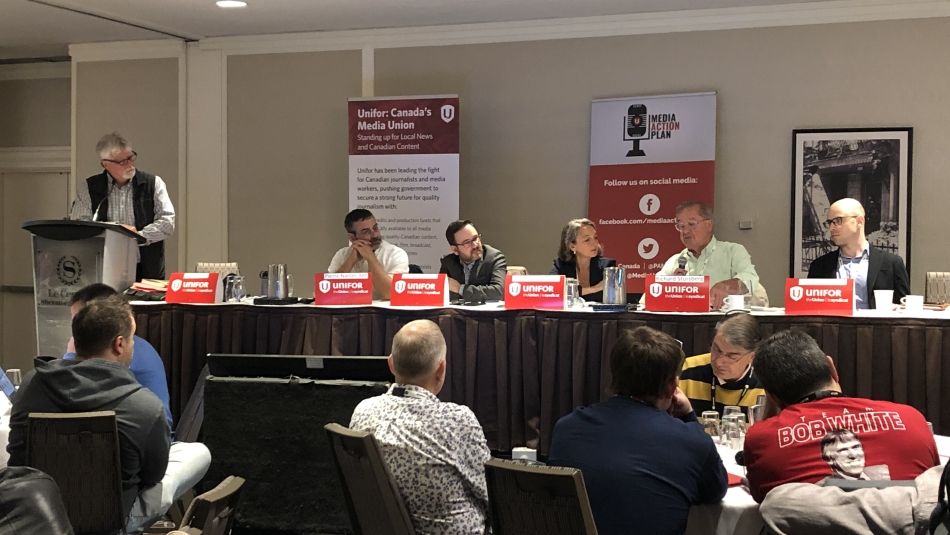
Share
Delegates at the 25th Annual Media Conference have a renewed urgency to continue to take action to keep journalists and media workers working.
Unifor National President Jerry Dias told members they have the full support of the union and Unifor will defend journalists and media workers from any attack on freedom of the press.
“In a time where we see politicians undermining mainstream media and spreading misinformation to serve their own agendas, we need media workers more than ever,” said Dias.
The conference, which took place between May 24 and May 26 in Montreal, tackled topics such as how the local news industry must adapt its current business model and how the government could intervene to prevent the demise of Canadian media outlets.
There is no debate that Canadian journalism is in crisis and under attack. “Newsrooms across the country are slashing jobs and shutting down because the advertising revenues that used to keep them economically viable are moving to online platforms such as Google and Facebook,” said Jake Moore, chair of the Unifor Media Council. “These companies do not provide our communities with the stories or information they need to understand what is going on in their own backyards, and they certainly are not keeping our politicians in check.”
Participants heard from keynote speaker Jason Alcorn, Vice President of Operations for the American Journalism Project. Alcorn spoke about the successes and challenges of non-profit news organizations in the U.S. that are funded by donations. Unifor members Emina Gamulin and Aldo Santin presented a similar report about the possibility of this model working in Canada.
A panel of broadcast experts and MPs also came together at the conference to discuss the Future of Canadian Broadcasting. Many agreed that tax loopholes are making tech giants such as Google and Facebook, richer. The Income Tax Act does not allow Canadian companies who advertise on traditional foreign platforms to deduct that expense, but when they advertise on these foreign online sites, they can. The government must take steps to apply tax rules fairly. This fix alone could save our country $800 million and help save local news. It was also proposed that the government should treat our news media as a public service, much like our police forces, and fund it properly for the role it plays in our democracy.
The Media Action Plan Committee, which lobbies the government and supports various campaigns to bring attention to issues facing media workers, encouraged members to engage on social media and ask politicians what their plans are to save the industry, in the run up to the federal election. The committee is reaching out to other sectors to ensure they spread the word.
“We need to do whatever we can to save Canadian media and media jobs,” said Dias. “Without journalists and media workers, our stories will not be told and there will be no watchdog to keep politicians in check. If this pillar of democracy is left to die, so will democracy.”


